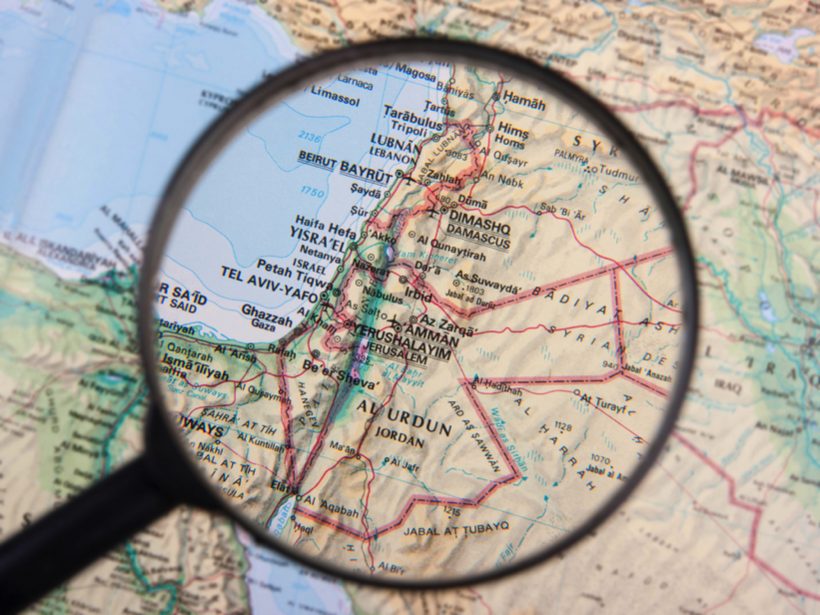Post-Zionism and Anti-Zionism after October 7
Post-Zionism is often presented as something smart and progressive — as if Zionism has fulfilled its mission by creating Israel in 1948, and now it’s time to move on. But after October 7, 2023, when HAMAS carried out a bloody massacre, killing 1200 people and taking hostages, this idea sounded ominous. While Israel mourned the dead and fought for survival, anti-Zionism swept everything outside its borders — UN podiums, student campuses, tweets of celebrities. Post-Zionism, which supposedly wanted to “renew” Israel, increasingly overlaps with anti-Zionism, denying the very right of the Jewish state to exist. This is not just disputes in academic circles — it’s a split in the Jewish world and fuel for those who justify terror. What’s happening? And why is willpower, not just talk, now demanded from Israeli leaders?

Post-Zionism is not an abstract theory. It’s the belief that Zionism has exhausted itself, and Israel should renounce its Jewish essence for the sake of a “state of all its citizens.” The voices of its adherents are heard from university chairs, in the works of “new historians” like Ilan Pappe, in left-liberal circles dreaming of a country without national borders and the Law of Return, which for them is a symbol of irritating exclusivity. They call Zionism “colonialism” and condemn militarism. But after October 7, these ideas went beyond lecture halls, becoming part of the anti-Zionist wave that not just criticizes but demands the destruction of Israel as a Jewish project.
When HAMAS stormed into kibbutzim, illusions of a “weapon-free peace” in Israel collapsed. The country united in the face of threat — survival turned out to be more important than philosophy. Abroad, a different scenario unfolded. The UN condemns Israel for “excessive force,” ignoring the terrorists’ rockets. Students at Harvard and London come out with slogans “Free Palestine,” not realizing that this “freedom” brings death. The Guardian and Al Jazeera stir up hysteria, while Susan Sarandon, Roger Waters, and Greta Thunberg accuse Israel of “genocide.” Post-Zionism adds fuel to the fire: if Israel is an “occupier,” then HAMAS is “resistance.” Thus, ideas from lecture halls turn into justifications for massacre.
Jewish communities outside Israel are splitting even more. In the USA, where 6 million Jews live, disputes have turned into a chasm. Leftists from Jewish Voice for Peace march with anti-Zionists, branding Israel an aggressor. AIPAC and Israeli patriots fiercely resist, seeing it as a strike at the foundations. Youth, raised on ideals of equality, increasingly pick up post-Zionist theses, moving away from Zionism. In France, with its 440,000 Jews, anti-Zionism spills into anti-Semitism — in 2024, attacks increased by 60%, and people hide their identity. In the UK and Canada, activists publish lists of “IDF Jews,” hinting at retribution. Some rally around Israel, others turn away, escaping labels.
The danger here is not in abstract debates. Anti-Zionism openly rejects the very existence of Israel, and post-Zionism, dreaming of a “state for all” and opposing the Law of Return, dilutes its Jewish essence. Together, they justify terror: if Israel is an “occupant,” then the killers from HAMAS are not criminals, but “fighters.” They undermine the idea of a national home, without which there is neither Israel nor a support for the diaspora. They divide Jews, making them vulnerable to enemies — from “Hezbollah” to radicals with posters. As HAMAS prepares a new strike, and the world screams “Israel is guilty,” these currents deprive us of the will to resist.
At such a moment, Israeli leaders need not loud phrases, but actions. You can’t sit idly by when the enemy is at the gates, and allies waver. Those who are not afraid to call things by their names are needed. In 2016, Avigdor Lieberman — you may love or hate him, but you can’t accuse him of empty talk — warned about HAMAS plans, provided evidence, but was ignored. After October 7, he demands to destroy the terrorists, not to play at ceasefires. This is the voice that insists: strike the enemy and build alliances with Arabs against radicals. Such determination is now worth its weight in gold.
After October 7, it became clear: post-Zionism and anti-Zionism are not just views, but challenges to our very existence. They split the diaspora, play into the hands of enemies, and undermine the right to a Jewish home. Israel needs leaders who don’t hide behind speeches but act. While we argue, HAMAS re-arms, and the world turns away. Golda Meir once said: “We want to live. The enemies want to see us dead. This leaves not too much room for compromise.” Her words are as relevant as ever.
Marina Rosenberg Koritny, Head of the World Zionist Organization Department for the Promotion of Aliyah, believes: “Today we see how post-Zionism and anti-Zionism erode our unity. This is not the time for illusions about a ‘peace for all’ — it’s time to defend our home. Israel must be strong, and leaders — unyielding. Otherwise, we’ll lose not just the state, but ourselves.”





